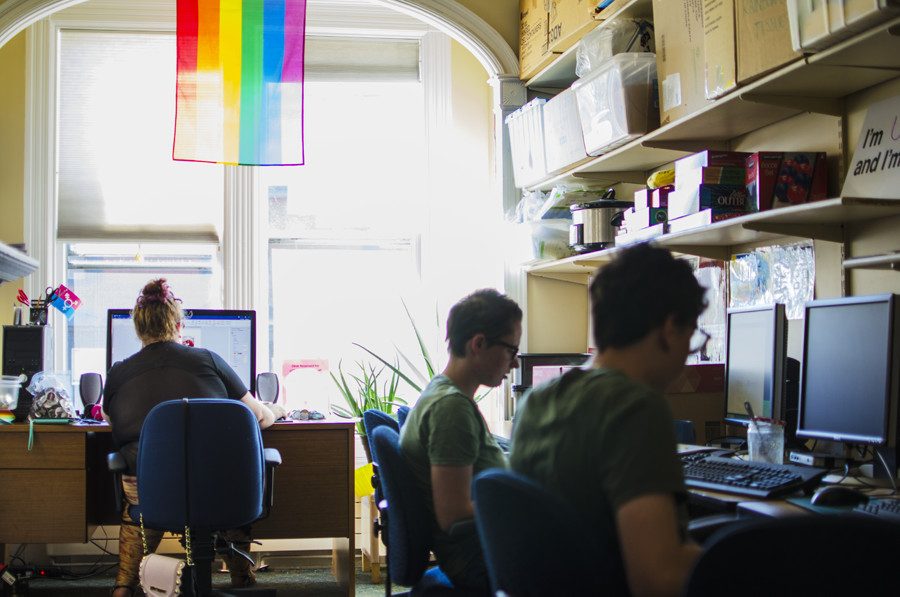Students call for LGBTQA support
October 11, 2017
UVM prides itself in being a progressive and accepting campus for all students.
The University is ranked as highly LGBT-Friendly and is on the Advocate and Campus Pride’s list of Top Ten Trans-Friendly Colleges and Universities, according to the LGBTQA Center’s website.
“There’s kind of an ongoing theme of UVM calling themselves progressive but not really doing enough,” said Bella Mezzaroba, officer of Free2Be said.
Mezzaroba said the amount of gender-inclusive housing available to students is an issue and LGBTQA students are pushing for gender-inclusive housing in every program on campus.
Another push is being made for mandatory diversity training for professors and Sodexo workers. There is currently optional training available at the Allen House, but not all professors and workers attend, Mezzaroba said.
“There’s been a lot of instances of Sodexo workers misgendering students, and they don’t mean it out of maliciousness, they just don’t know,” Mezzaroba said.
Workers often use terms like “sir” or “ma’am” when referring to students, which isn’t necessary and may misgender students, Mezzaroba said.
“I feel safer being openly queer on Church Street than I would some place in Philadelphia, but I feel like [Burlington] is given all this credit for being very liberal and that doesn’t mean it doesn’t have its problems,” Mezzaroba said.
While there is a dialogue of issues needing to be addressed on campus, there are also many positive things that should be acknowledged, said Kate Jerman, director of the LGBTQA center.
“UVM is a leader around inclusion for LGBT students nationwide,” Jerman said. “We don’t have a lot of peers that have done the kinds of things that we’ve done on an institutional level, such as gender-neutral bathrooms.”
Queers and trans students on UVM campus have always advocated for themselves and supported each other socially…. But the LGBTQA Center had to play a critical role in making changes on the institutional level, Jerman said.
“The people who are working at the center are amazing,” Mezzaroba said. “The funding isn’t good enough, but they do a great job with what they’re given.”
While LGBTQA+ students are generally supported on campus, there should be more diversity in classrooms, sophomore Caroline Schryver said.
“Professors still use predominately heterosexual examples during class, and overall it doesn’t really seem that the community has been embraced in the learning environment of UVM,” she said.
Jerman says one of the Center’s responsibilities is to be a vehicle for student voices to be heard.
“When I think specifically about queer and trans people of color, we’re a predominately white institution and issues of racial equity have always been an area of tension for the campus, and they don’t just get better on their own,” Jerman said. “We have to be intentional about it.”
Part of what Jerman says the Center can do is focus on identity and the intersectionality of gender, sexuality and race.
“I think one of the struggles we have on campus is a microcosm of what we have in larger queer communities and that is that whiteness has always been centered in queer identity…now that our eyes are open to that, it’s our job to change that,” Jerman said.
Jerman says the histories and the legacies of queer and trans people of color need to be made more visible, so there’s not just a white understanding of queer identity.
For National Coming Out Month, there will be events highlighting the contributions of queer and trans people of color to queer history.
“The idea that you’re either in or out and that there’s a binary there is a super white concept,” Jerman said. “There are so many things to unpack about who has the privilege to be out and to tell others they should also be out,”







